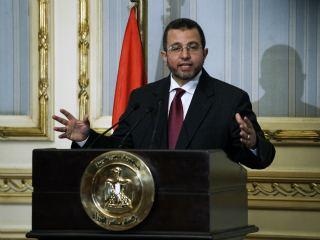The Arab Federation of Capital Markets (AFCM) has reported that financial markets are crucial in supporting the green transition. By ensuring transparency, clear information, and fair market practices, the carbon market becomes an ideal setting that fosters the emergence of green projects and smooth carbon trading.
The Federation highlighted the need for Middle Eastern nations to leverage technological progress and upgrade infrastructure to better assess and manage environmental impacts. This requires ongoing cooperation between the region’s financial entities and tech companies.
Green initiatives enable firms to issue carbon certificates, which serve a dual purpose. They not only confirm the company’s efforts in reducing emissions but also offer a means to trade these certificates with other entities.
Middle Eastern countries are actively moving towards a green transition and reducing carbon emissions, aligning with the Paris Climate Agreement. Noteworthy initiatives include the Dubai Financial Market’s pilot carbon trading program and the Egyptian Exchange’s creation of Africa’s first voluntary carbon market.
The Federation also recognized Saudi Arabia’s introduction of systems to balance greenhouse gas emissions, highlighting the actions governments must take, including legislative changes, to meet these objectives, and how technology can aid in this process.
The Gulf Cooperation Council has issued guidelines to encourage green finance and investment, which are becoming increasingly popular in the region. In 2022, green investments in green bonds and Sukuk peaked at $8.5bn.
In Dubai, a consortium of financial institutions is spearheading green finance efforts, aiming to align financial markets with sustainability standards in environmental, social, and governance aspects. This initiative strives to create transparent markets that safeguard stakeholders and prevent greenwashing.
Internationally, stock exchanges are adopting similar measures. The London Stock Exchange facilitates voluntary carbon trading, while the Tokyo Stock Exchange plans to introduce international certificates to complement the existing ‘J-credits.’ Indonesia’s stock exchange has also issued local carbon certificates.
The global market for green bonds, which finance eco-friendly projects, has seen a substantial rise, with issuances exceeding $480 billion in 2022.
The United Nations’ “Net Zero Asset Owners Alliance,” launched in 2019, consists of major investors dedicated to shifting their portfolios to net-zero emissions by 2050, managing assets worth approximately $9.5trn.
Moreover, Arab nations such as Saudi Arabia and the UAE are making significant investments in renewable energy. The UAE, for instance, has pledged to invest about $163 billion in clean energy projects by the year 2050.
The report concludes that the journey towards achieving zero-carbon emissions in the region requires collective commitment from all stakeholders in societies, including governments, financial institutions, and companies. Cooperation among these entities is essential to achieve sustainability goals, with priority given to activities aimed at addressing climate change risks due to their severe global impact, necessitating urgent solutions.




